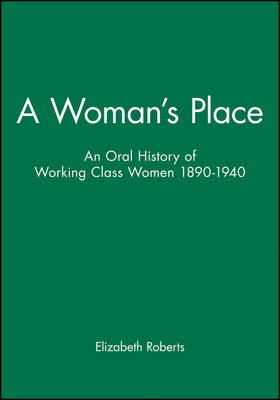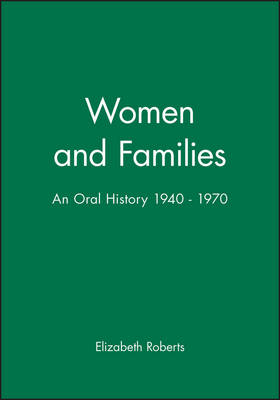Family, Sexuality and Social Relations in Past Times
2 total works
A Woman's Place is based upon Elizabeth Roberts's interviews with 160 elderly people from the towns of Barrow, Lancaster and Preston. They recall their memories of family life as children, youths and adults in the period between the last decade of the nineteenth century and the outbreak of the Second World War. A Woman's Place shows working-class women to be conscious of, and secure in, the separate, private sphere of home and family, with little feeling of male oppression, but more of class oppression and economic injustice to man and woman alike. A woman's key place within the family as budget manager and domestic decision taker was widely recognized. It was, however, a position won at great cost. The hazards of childbirth, the grueling physical routines of washing, cleaning and cooking, the necessity of undertaking part-time, or (in Preston especially) full-time paid employment to boost the family's meager income, were the coin with which that role was bought. This hard female experience from childhood to motherhood is carefully and sensitively recorded, and the oral evidence supported and elucidated by documentary material from a wide range of local and national sources.
Elizabeth Roberts's classic work in the oral history of the family is now reissued to coincide with the publication of Women and Families to which it is a direct prequel. Taken together the two books provide an unrivaled picture of almost a century of social change.
Elizabeth Roberts's classic work in the oral history of the family is now reissued to coincide with the publication of Women and Families to which it is a direct prequel. Taken together the two books provide an unrivaled picture of almost a century of social change.
This is an account of three English working--class communities in England from 1940 to 1970. The story is told through the words and memories of those who lived through it. The book is at once vivid, moving and eye--opening.

